In this episode I am joined by Jeffrey Friedman, a renowned professor of political science at Dartmouth and the author of the pivotal book "The Commander in Chief Test." Jeffrey explains the nuanced intersection of foreign policy and presidential elections. His book beautifully synthesizes polling data, survey experiments, archival work, and voting behavior analysis from 1960 to the present, providing valuable insights into how foreign policy influences voters and shapes electoral outcomes. Jeffrey's depth of knowledge offers a rigorous examination of the personal traits voters prioritize in a commander in chief, making his perspective indispensable and incredibly timely as we find ourselves in the middle of the 2024 election cycle.
Topics Covered:
U.S. China Policy and Presidential Rhetoric
Historical Context of U.S. Global Power and Influence
Perceived Strength in Presidential Candidates
Impact of Rhetoric vs. Events on Election Outcomes
Time Stamps:
00:00 Kicking it off with monetary policy and public finance.
05:37 Jeffrey's Book explores foreign policy's impact on elections.
07:10 Assessing voters' view on leaders for presidency.
11:06 Kennedy gains trust on foreign policy, no promises.
13:32 Eisenhower's military spending declined, Kennedy promised more.
19:45 Analyzing Kennedy's rhetoric's impact on voter's choices.
21:56 Foreign policy shifts can sway presidential elections.
24:29 Johnson's actions to appear tough for votes.
28:11 Decisive action taken to control congressional debate.
33:16 Dukakis argues for sensible defense spending priorities.
36:04 Political questioning, Biden's approach and assertiveness.
41:22 Biden's political incentives in Israel-Gaza crisis.
43:04 Trump's unconventional stance on NATO exposes vulnerability.
46:51 Biden should defend his record against Trump attacks.
50:24 Long-term geopolitical trajectory: US, China, India.
53:11 Russia lacks power projection, US role shifting.
This episode is a treasure trove for anyone interested in the dynamics of political strategy and international relations. You will gain an understanding of how candidates' images on foreign policy shape electoral outcomes and influence U.S. foreign policy itself. The discussion covers long-term geopolitical trends and the recalibration of American power, reflecting traditional views from earlier administrations. This dialogue will leave you with a nuanced perspective on the political machinations involved in projecting strength on the global stage and allow you to consider the substantive implications of U.S. policy towards global players like China, Russia, and beyond.
Economic Matters - The podcast is hosted by Laurence Kotlikoff, a Boston University Economist, a NY Times Best Selling Author, President of maxifi.com, and Author of Money Magic.
Stay Connected: Facebook, Twitter, LinkedIn


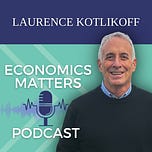




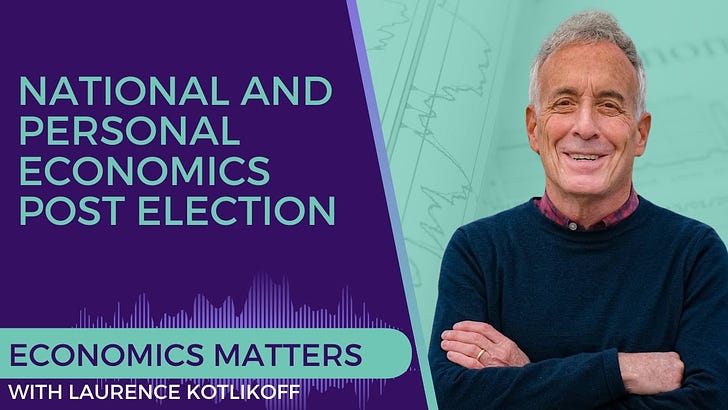
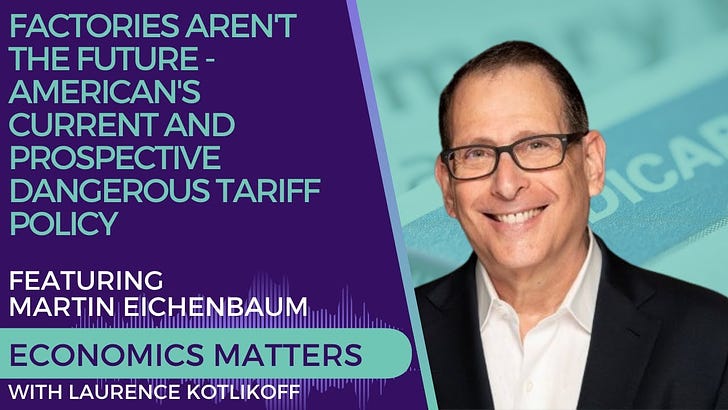
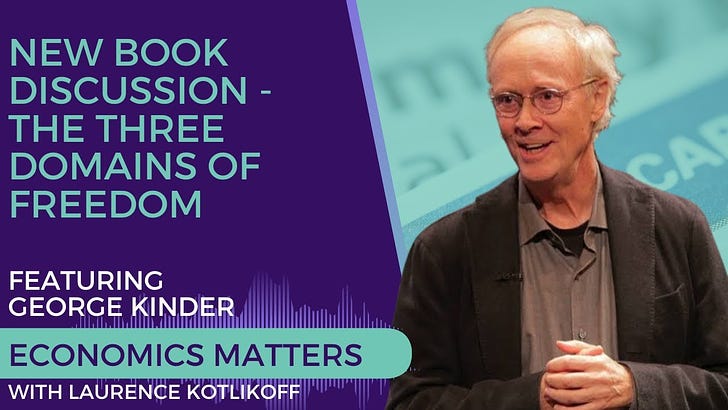


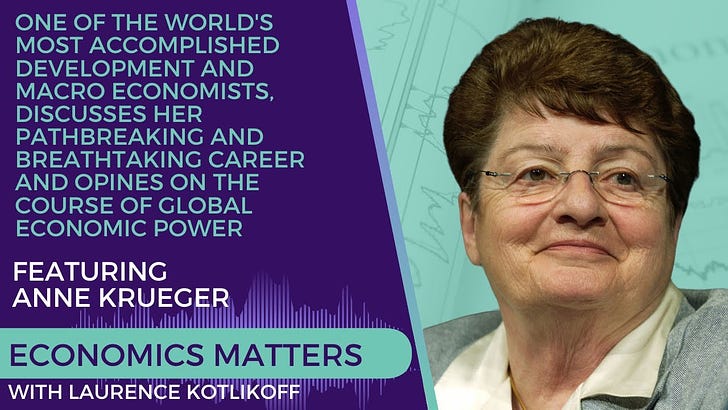
Share this post